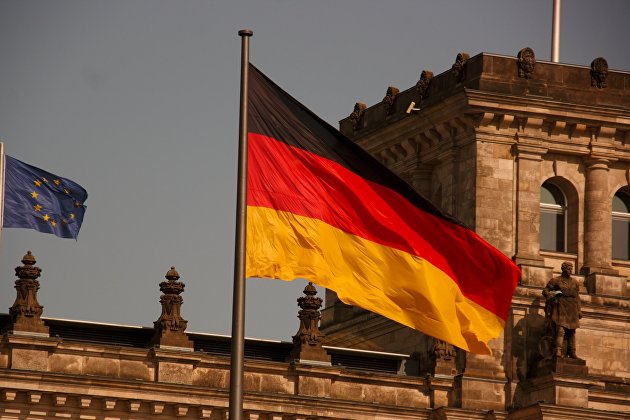
The German economy faces many years of stagnation
Despite the generally positive results of the authoritative Ifo economic and financial survey, Germany's GDP is likely to fall this quarter, predicts London's Sunday Telegraph. This means that Germany will be in a technical recession. More worryingly, the outlook for Europe's first economy looks very bleak.
On the one hand, all economies have experienced the coronavirus pandemic and are recovering with varying degrees of success. On the other hand, economic growth in Germany already slowed sharply in 2017, three years before the pandemic. Industrial production has been declining for six years. From the third quarter of 2017 to the third quarter of 2023, the German economy grew by just over 1%. By comparison, France and Italy's economies grew by 4% over the same period, Spain by 6% and the UK, despite Brexit, by 4.6%.
Some of the problems facing the German economy are temporary. For example, it suffered greatly from a sharp rise in gas prices, which hit both German citizens and the energy-intensive manufacturing sector very hard.
Germany has also been hit hard by high eurozone interest rates and weakness in the construction sector. In the second half of 2024, when the ECB starts to cut interest rates, the economy will of course ease somewhat, but this will not affect the overall picture.
Germany has also suffered from the slowdown in its main trading partner, China. Relief will have to wait. As wages have risen recently, Germany's price competitiveness has also started to decline. Germany's famous exports are somehow holding up for now, but they too face an inevitable decline because of the problems in China.
The "wound" that Berlin has inflicted on itself stands out. We are talking about German fiscal policy. Despite the fact that Germany has a very low public debt-to-GDP ratio (64%) compared with most other countries, the federal government has passed a law requiring a virtually balanced budget. As a result, there are now serious strains throughout the country's financial system. In addition, the financial situation is becoming more strained by the day as economic growth slows and the situation in the financial sector worsens.
How can these problems be solved? One solution could be a major rebalancing of the economy as a whole. It is worth noting that Germany still has a current account surplus of around 7% of GDP. This obviously needs to be reduced, but not by reducing exports, but by increasing consumer spending. However, German citizens are cautious and in no hurry to spend.
Of course, Germany has more serious problems. One is the decline in the working-age population. In the past, this problem was largely offset by a sharp rise in employment and an increase in the number of working women. However, unemployment is currently hovering around 3%, making a further decline unlikely. As for the number of women in employment, Germany also seems to have reached a peak in this indicator, after which the decline will begin.
Of course, you can try to solve the demographic problem by importing workers from abroad, but this is a very difficult and delicate political issue for Germany. Especially given the rapid rise in popularity of the far-right Alternative for Germany (AfD) party, which is extremely hostile to immigrants.
Another possible solution to the shortage of working-age people is unlikely to be an increase in labour productivity, which would make it possible to cope with the decline.
For all its advantages, the German economy can hardly be described as dynamic, according to the Telegraph. It is very far behind in digitalisation and has a very small artificial intelligence (AI) sector. This means that Germany will be the odd man out in the "celebration of life" associated with the impact of AI.
Nevertheless, it would of course be a mistake to write off Germany, whose economy still has many hidden strengths and opportunities. Moreover, it was in a similar position in the not so distant past. After German reunification in the late 1980s, it was dubbed the "sick man of Europe". But it quickly regained its strength. On the other hand, many experts now see a repeat of the same resurgence as problematic.
The Telegraph predicts that the German economy will grow by just over 0.5% a year until the end of this decade. Incidentally, such weak growth in the German economy will make life difficult for its trading partners.
Of course, the current weakness of the German economy will also have an impact on politics. Problems in the economy will certainly weaken Berlin's desire, so strong in the recent past, to play a major role in Europe and to deepen integration in the European Union.
